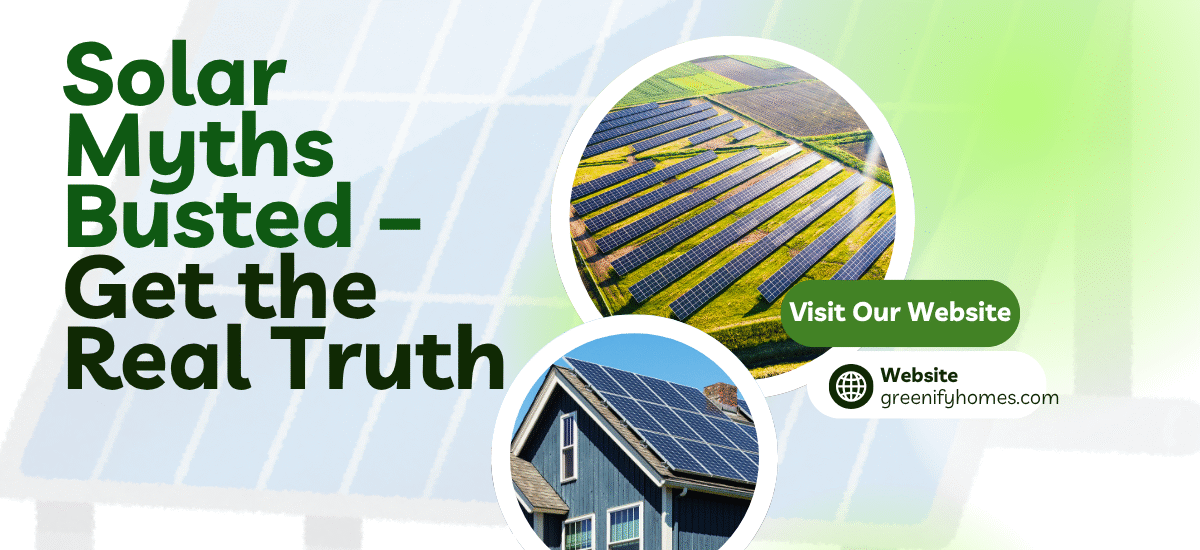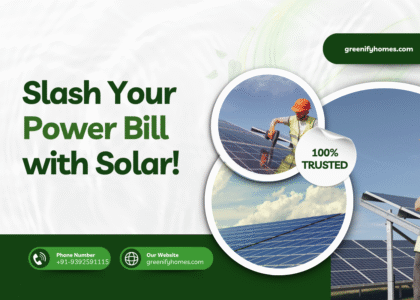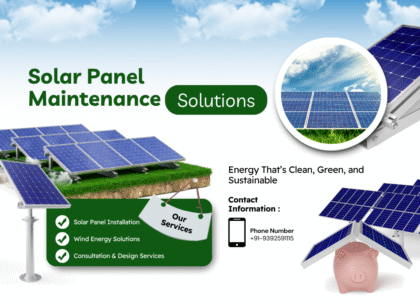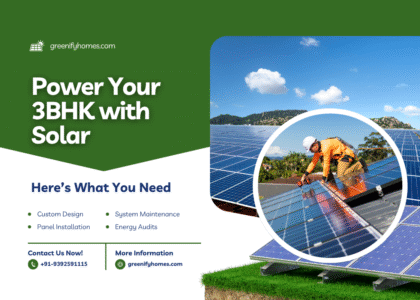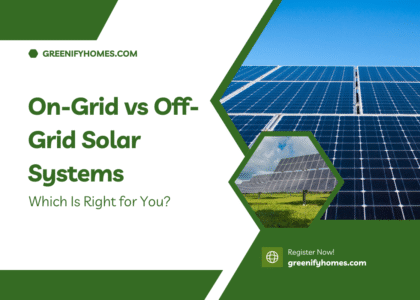Introduction
With power bills climbing and the climate crisis intensifying, solar energy is gaining serious traction in India. Yet, many people still hesitate to install solar systems — mostly because of outdated ideas and myths.
Let’s clear the air and bust the most common solar energy myths, one fact at a time.
Myth #1: Solar Panels Don’t Work on Cloudy or Rainy Days
Truth: Solar panels don’t need direct sunlight 100% of the time. They still generate electricity from indirect sunlight or diffuse light during cloudy weather.
Yes, production is reduced on gloomy days, but they still work efficiently enough to power your home — especially in regions with frequent sun overall.
Myth #2: Solar Power Is Too Expensive
Truth: While solar systems had a high upfront cost 10 years ago, today the scenario is totally different.
Thanks to:
- Government subsidies (up to 40% in India)
- EMI options
- Lower panel prices
Going solar is now affordable for middle-class families, especially when you consider long-term savings.
Myth #3: Solar Systems Need Constant Maintenance
Truth: No, you don’t need to hire an engineer every week.
- A simple cleaning every 2–3 months
- Annual inspections from a professional
- And some basic app monitoring…
…is enough to keep your solar panels in top shape. That’s less time than you spend cleaning your ceiling fan!
Myth #4: Solar Can’t Power ACs or Big Appliances
Truth: You can absolutely run high-power appliances with solar — as long as your system is sized right.
A 3–5 kW system can easily handle:
- ACs
- Refrigerators
- Washing machines
- Microwaves
- Geysers
Want to go fully solar? No problem. Just choose a larger capacity system.
Myth #5: You Can Only Go Solar If You Live in a Sunny State
Truth: India, from Kashmir to Kerala, gets ample sunlight. Even in states like:
- Himachal
- Assam
- Maharashtra during monsoon
…solar panels work reliably. On average, most parts of India receive 4–5 hours of usable sun per day — more than enough to make solar worthwhile.
Myth #6: You’ll Always Be Without Power at Night
Truth: This one’s very common, but totally false.
- If you’re on-grid, you get electricity from the grid at night.
- If you have a hybrid system, the battery stores daytime solar power for night-time use.
So no, going solar does not mean sleepless nights in the dark!
Myth #7: Solar Panels Will Damage My Roof
Truth: Solar panels are mounted using non-invasive structures that do not harm your roof.
In fact, they can:
- Protect your roof from direct heat and rain
- Increase the life of your rooftop tiles
As long as you hire a professional installer, your roof is 100% safe.
Myth #8: Solar Systems Are Ugly
Truth: That was maybe true 15 years ago — but not today.
Modern solar panels are:
- Sleek
- Low-profile
- Symmetrically installed
They actually add a modern touch to your home — and many new homeowners prefer solar-ready roofs when buying property.
Myth #9: Solar Panels Don’t Last Long
Truth: Most solar panels come with a 25-year performance warranty, and many last up to 30 years with good maintenance.
Sure, there’s a slight drop in efficiency over time (~0.5% per year), but your panels will still work well long after your car stops running.
Myth #10: Going Solar Means Going Off-Grid
Truth: Not at all.
In fact, most Indian homes install on-grid solar systems, which:
- Stay connected to the power grid
- Use net metering to balance power usage
- Don’t require batteries
You enjoy all the benefits of solar without cutting off from the grid.
Final Thoughts
Solar energy is clean, cost-saving, and future-ready — but myths and misunderstandings often stop people from adopting it.
Now that we’ve cleared the biggest doubts, you can confidently explore solar knowing it’s:
- Affordable
- Reliable
- Scalable
- Long-lasting
And yes — perfectly suited for Indian homes.
FAQs
1. Is solar energy reliable during Indian monsoons?
A. Yes! Solar panels still produce power, just at a slightly reduced rate.
2. Can I run everything on solar, including an AC?
A. Absolutely. You need a properly sized system (4–6 kW for full household use).
3. Do solar panels need batteries to work?
A. Only for off-grid or hybrid systems. On-grid setups don’t require batteries.
4. Is solar power cheaper than grid power in the long run?
A. Yes. After the 4–6 year payback period, you enjoy free electricity for 20+ years.
5. Can tenants install solar systems?
A. It’s possible, but it’s better suited for homeowners. Tenants can consider portable solar kits or speak with landlords.

